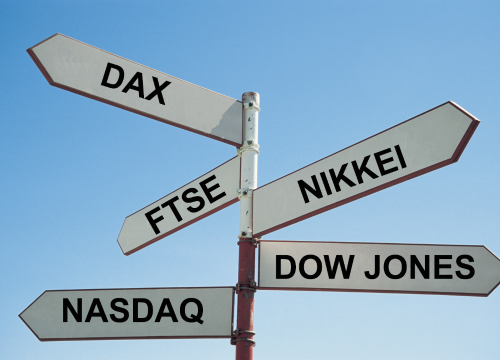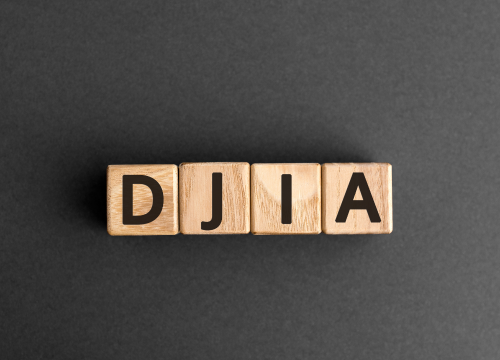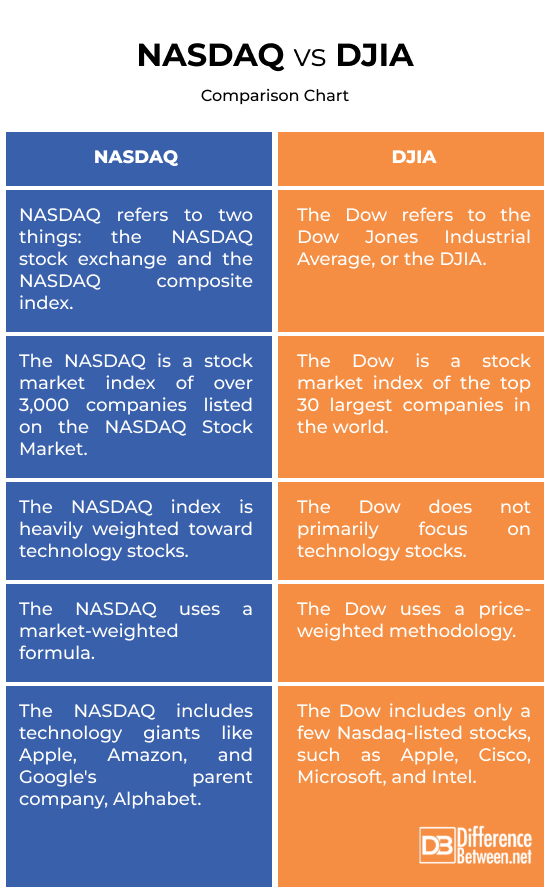Difference Between DJIA and NASDAQ
The United States has three major indexes: the NASDAQ, the Standard & Poor’s 500, and the Dow (DJIA). When companies go public, they can choose to list on any of these exchanges. The NASDAQ is one of the most-followed market indices in the U.S. It includes the world’s largest tech companies in its portfolio.
The Dow is yet another popular index that investors follow to know how the market is performing. It’s one of the oldest stock market indices in the world.
Here’s a detailed breakdown of the differences between the NASDAQ and the Dow. But first, let’s take a look at the two indexes.

NASDAQ
There are two distinct meanings to the phrase NASDAQ. This brings us to our first point: the NASDAQ stock exchange, which is home to some of the most prominent tech companies in the world. A wide variety of businesses across all industries use its electronic trading platform.
The “NASDAQ Composite Index,” which tracks the fortunes of more than three thousand firms traded on the NASDAQ Stock Market, comes in second. This group encompasses businesses from many different industries, such as healthcare, technology, consumer goods, and more.

DJIA
One of the world’s oldest stock market indices, the Dow Jones Industrial Average (DJIA) is what the term “Dow” stands for. Since its inception in 1896, it has served as the initial index in the United States. Listed on both the NASDAQ and the NYSE, it is an index of the 30 biggest firms in the world by market capitalization. Almost a quarter of the US market is represented by the Dow.
The DJIA is a price-weighted index, as opposed to other market indices that rely on market capitalization. After tallying up the share prices of all the companies in the index, it divides the total by the total number of companies. To get the average, we take all 30 firms’ stock prices and divide them by a divisor.
Difference between DJIA and NASDAQ
Composition
Thirty of the world’s most valuable firms, as listed on the NASDAQ and NYSE, make up the Dow, an index of stock market performance. While some of these businesses are listed on the NASDAQ, most of them are on the NYSE.
The NASDAQ, on the other hand, is an index of more than three thousand companies trading on the NASDAQ Stock Market. In terms of market capitalization, it ranks second, just after the New York Stock Exchange (NYSE).
Weighting Methodology
Since the NASDAQ uses a modified capitalization technique, the value of the index is more heavily weighted toward companies with larger market caps. When the market capitalizations of the companies that make up the index change, the index is rebalanced.
In contrast, the Dow uses a price-weighted approach, which means that higher-priced stocks have a bigger influence on the value of the index. The value of the index is based on the prices of individual equities rather than the overall market value of all stocks.
Portfolio
Stocks in technology and service sectors, like banking, make up the bulk of the NASDAQ index. Tech behemoths like Alphabet (Google’s parent firm), Apple, and Amazon are mostly part of it.
With the exception of Cisco, Apple, Microsoft, and Intel, all 30 stocks that make up the Dow are listed on the New York Stock Exchange (NYSE). Almost a quarter of the US market is represented by the Dow.
NASDAQ vs. DJIA: Comparison Chart

Summary
The most important distinction between the two indexes is that the Dow uses a price-weighted indexing formula, while the NASDAQ, like other market indexes, uses a market-weighted formula. The Dow takes a different approach by adding up the price per share of each company and then dividing the sum by the number of companies in the index. In contrast, the market-weighted approach takes market capitalization into account.
FAQs
What is the difference between the Dow Jones and the NASDAQ?
The Dow Jones and NASDAQ are both stock market indices but represent different groups of companies. The Dow Jones consists of 30 large, publicly traded companies, while the NASDAQ Composite includes over 3,000 companies.
Is Apple on NASDAQ or Dow?
Apple is listed on NASDAQ.
Is the S&P 500 Dow or NASDAQ?
The S&P 500 is neither part of the Dow nor NASDAQ. It’s a separate stock market index that includes 500 large companies from various sectors.
Is DJIA the same as US30?
The Dow and the US30 are often used interchangeably. In fact, they are the same.
What stocks make up NASDAQ?
The NASDAQ primarily lists stocks of the top technology companies like Apple, Microsoft, Amazon, and Alphabet.
What is NASDAQ in simple terms?
NASDAQ is a U.S. stock exchange where investors can buy and sell shares of publicly traded companies.
- Difference Between Caucus and Primary - June 18, 2024
- Difference Between PPO and POS - May 30, 2024
- Difference Between RFID and NFC - May 28, 2024
Search DifferenceBetween.net :
Leave a Response
References :
[0]Houpt, Evan J. and John Border. Stock Market Basics Explained for Beginners Investing in the Stock Market. AP Publishing, 2015.
[1]Wójcik, Dariusz. The Global Stock Market: Issuers, Investors, and Intermediaries in an Uneven World. Oxford University Press, 2011.
[2]Kansas, Dave. The Wall Street Journal Complete Money and Investing Guidebook. Three Rivers Press, 2010.
[3]“The Dow vs. The Nasdaq: What's the Difference?” Investopedia, 11 July 2023, www.investopedia.com/ask/answers/difference-between-dow-and-nasdaq/.
[4]Image credit: https://www.canva.com/photos/MADE9ovhfkQ-sign-post-with-various-stock-exchanges-written-on-them/
[5]Image credit: https://www.canva.com/photos/MADtMtS_AUs-djia-acronym-from-wooden-blocks-with-letters/
